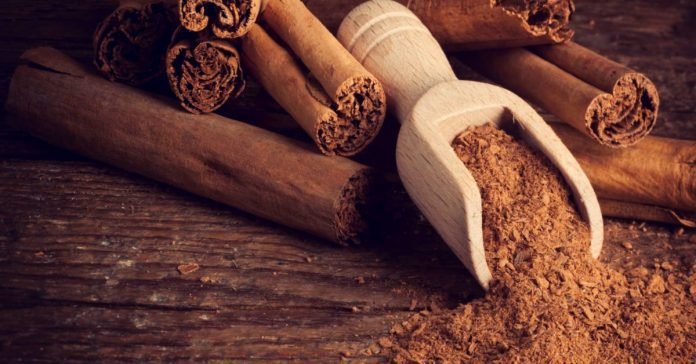Last Updated on March 12, 2024 by admin
You’ve been tricked your entire life – by cinnamon, no less.
No, really. Odds are you have little to no experience with true cinnamon – aka Ceylon cinnamon. That’s because the cinnamon you typically find in stores is often just labeled cinnamon, without further detail.
But there’s more than one type of cinnamon, and it turns out they are not all the same.
Confusing, isn’t it?
Keep reading to learn all about the Ceylon cinnamon advantages – what it is, what it’s like, and even some of the health benefits.
Table of Contents
What Is Ceylon Cinnamon?
Ceylon cinnamon is the one “true” cinnamon. As the name implies, Ceylon cinnamon comes largely from Ceylon, a former British colony that is part of modern-day Sri Lanka. The small evergreen tree is native to the area.
The scientific name of Ceylon cinnamon is Cinnamomum verum. Other Cinnamomum trees are used to make cinnamon too. Cinnamomum cassia is commonly used and marketed as cinnamon, but it’s not true cinnamon.
Ceylon Cinnamon vs. Cassia Cinnamon
Both types are commonly sold simply as “cinnamon.” Both have the same active ingredients and flavors, but the potency is different.
Ceylon cinnamon has a lighter color than Cassia cinnamon. Cassia cinnamon is a darker brown color. Ceylon is also thinner and more fragile than Cassia cinnamon.
Ceylon is mildly sweet with a delicate taste, as opposed to the pungent taste of Cassia. As a result, Ceylon makes for a great addition to desserts.
Ceylon Cinnamon and Its Benefits
Ceylon cinnamon has some health benefits due to its antioxidant levels. These antioxidants protect the body from free radicals – unstable atoms that damage cells.
These antioxidants also protect against cell mutations and tumors, meaning cinnamon may protect against cancer.
The same antioxidants are also anti-inflammatory. They can protect against chronic inflammation caused by diseases such as cancer, type 2 diabetes, and heart diseases.
Short-term consumption of cinnamon is healthy. However, Ceylon cinnamon is the healthiest choice.
That’s because cinnamon contains coumarin. When consumed in large amounts, coumarin may cause liver damage. However, Ceylon cinnamon contains much lower levels of coumarin than other types of cinnamon.
Where Can I Find Ceylon Cinnamon?
If you have a local grocery store, you can check for Ceylon cinnamon there. However, it can be hard to determine if you’re getting “true” cinnamon or Cassia cinnamon. You can try to check the label, but it may not indicate where it was sourced from or what type of cinnamon it is.
If that doesn’t work, you could try contacting the manufacturer and seeing if they can provide you with an answer.
If that doesn’t work and your local grocery store doesn’t carry it, consider looking at a Ceylon cinnamon store online. A good online store may have it and other specialty products you need. Often they will include shipping in the purchase price.
Ceylon Cinnamon Is the True Cinnamon
Ceylon cinnamon is the “true” cinnamon for a reason. It has a delicate taste, is safer than other types of cinnamon, and is great in baked goods, tea, and other snacks. If you haven’t tried it yet, you should!
We hope you found this Ceylon cinnamon guide useful. If you did, check out other articles on our site for more helpful guides, tips, and articles.
Read also: The Amazing History of the Bean Bag Chair
